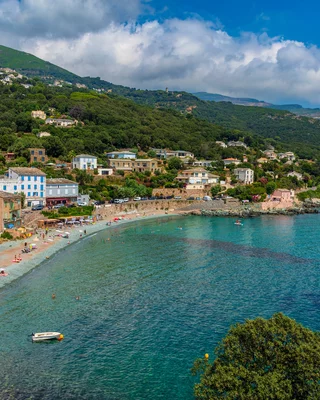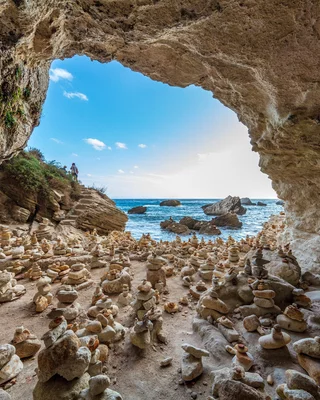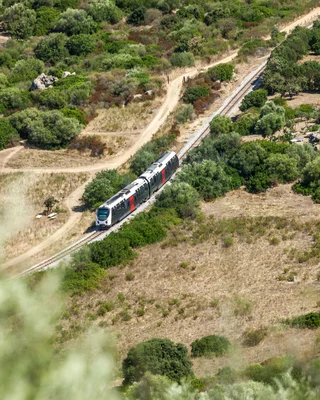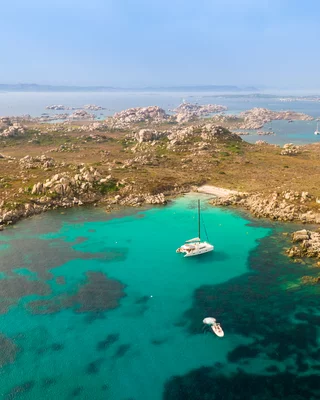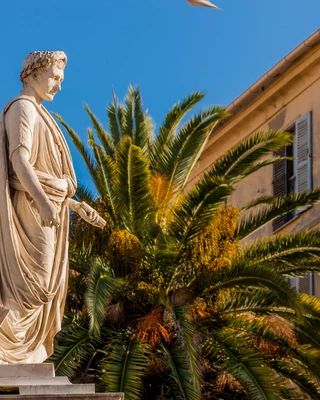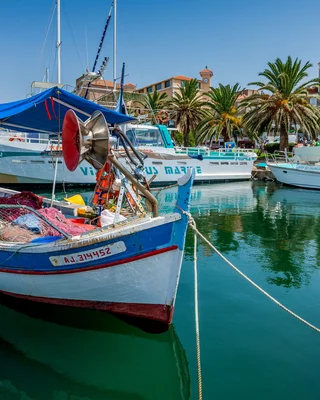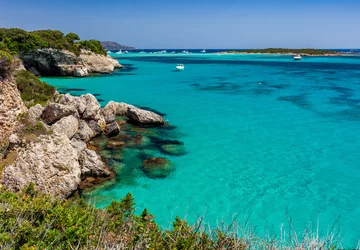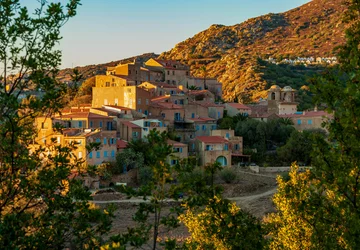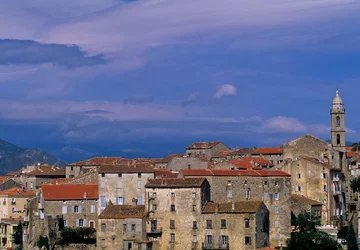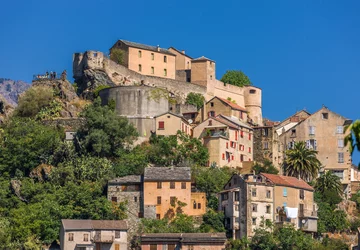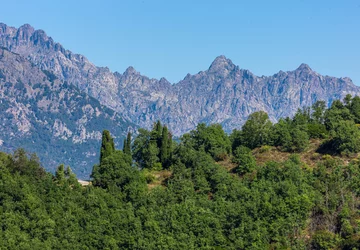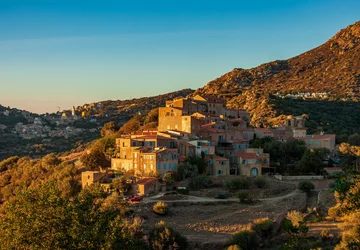Corsica: its words and expressions
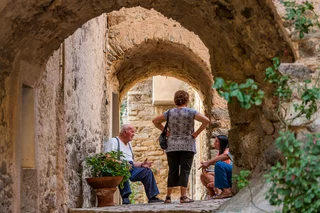
A wonderful vacation in Corsica means bathing in its turquoise sea... but also in its culture! Understanding the island also means understanding its inhabitants. Spice up your stay by practicing your Corsican. There's nothing like communication, on vacation or off. A change of scenery and a smile are guaranteed.
Even if at first your efforts are likely to be received with amusement (on this site we talk about the joys of macagna-gentle mockery, a veritable national sport), don't be put off: the locals will be touched by your desire and will always be willing to teach you a few phrases.
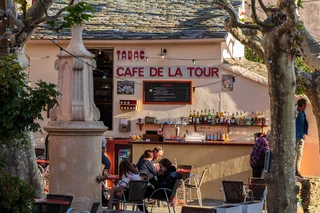
The Corsican language, past and present
Corsican is not a patois, it's a language in its own right, broken down into several dialects depending on the micro-region. A Bastia native doesn't speak like an Ajaccio native, and a Bonifacian understands himself...in Bonifacio. Here, we'll give you the rudiments of vocabulary understood in both Haute-Corse and Corse du Sud.
For centuries, Corsicans have used their own idiom, modified and enriched over time as the island was occupied. In the not-too-distant past, French was imposed at school, but Corsican was spoken at home. Recognition of the language was a long and patient journey.
With the exception of a few ancient words whose origins remain unclear, its Latin roots are unmistakable, and it is similar to Italian, but with different accents and mutant pronunciations (diphthongs or triphthongs). Until the end of the 19th century, Corsican was mainly spoken. That's why the expressions are so colourful, lively and familiar. And songs in all their diversity (religious, folk, popular...) are a magnificent reflection of this. It wasn't until the '20s that the first periodicals appeared and Corsican began to take off in written form.
Corsican language basics, accent and pronunciation.
In Corsican, unlike in French, everything written is pronounced, with a few exceptions...and everything pronounced is written...with a few exceptions.
To master it, here are a few golden rules:
First and foremost, you need toemphasize the tonic vowels, and there are three kinds of words here:
The most numerous, where the stress is on the penultimate syllable: mamma (mother), dumane (tomorrow), settimana (week). Then there are words where the accent is placed on the antepenultimate (penultimate-to-last) syllable, as in sabatu (Saturday), abitudine (habit). And last but not least, those where the stress is on the last syllable: libertà (freedom) caffè (coffee).
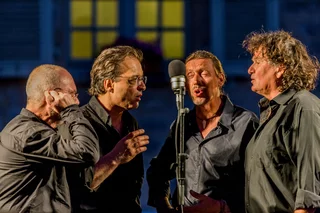
The second rule is to pronounce double or single consonants differently, as the meaning is not the same. "Cullà" (to go up) is not "culà" (there), "sonnu" (sleep) is not "sonu" (sound), and "cane" (dog) is not "cane" (reeds).
There are 5 vowels:
- a
- e , pronounced é or è
- i
- o pronounced as in " port" or as in " pot
- u , always pronounced ou.
Consonants are the same as in French(except for k, w and x), but some are pronounced differently depending on their position in the word or sentence. B and v are interchangeable depending on their position, and are heard b as in babbu (papa) or as in ouate in French (a vittura, la voiture). The z is heard as ts or x, but is less soft than in French.
Let's move on to more difficult words:
- Sg is pronounced g (i misgi, cats)
- Sc is pronounced ch (scelta, choice)
- Ce or ci is pronounced tch (a cena, the meal)
- Ch is pronounced k ( chè, what)
- Gh is pronounced gue (a ghirlanda, the garland)
- Gl is pronounced l ( a paglia, the straw)
For the more adventurous, let's move on to chj , reminiscent of the t in tiare (chjama, to call; a machja le maquis) and ghj pronounced more or less like a d (aghju, j'ai).
Yes, the last vowel is usually swallowed, so bon appetitu is pronounced bon appetit'. But beware, Porto Vek hurts the ears, as does Bonifatch, which is called Bonifacio or Bunifazziu.
How do you say thank you, welcome, hello, good health in Corsican?
Now that you've got the hang of it, let's take a look at the vocabulary and a few expressions.
- Hello, good evening: bonghjornu, bona sera
- Au revoir : avvèdeci
- Merci / Je vous remercie = Grazie / Vi ringraziu
- S'il vous plaît : fate u piacè, pè piacè
- Excuse me : Scusatemi
- Welcome : Benvenuti
- Santé (en trinquant) : A Salute
- Oui, non : iè, innò
- Words : E parolle
- How do you say "anticonstitutionnellement" in Corsican: Cumu si dice "anticonstitutionnellement" in corsu?
- How are you, how are you doing? cumu state, cumu va?
- Ça va: và bè
- I understand a little Corsican, but not that much: capiscu appenà u corsu, micca tantu
- Thank you; viringraziu/grazie
- See you soon: à dopu/à prestu
- Courage: curagiu
- Money, pennies: i soldi
- Bateau: u battèllu
- Hotel: osteria
- Train: u trenu
- Car : a vittura
- Circuit: giru
- Devant derrière: davanti daretu
- Straight ahead: dirittu dirittu
- à gauche/à droite: à manca, à dritta
- What to do: chi fà
- Experience:sperienza
- Let's go: andemu
- Face u caldu: il fait chaud
-
c'est bien : Macu
Translation of some numbers
Zero / one / two / three / four / five / six / seven / eight / nine / ten / twenty / hundred / thousand
zeru / unu / duie / trè / quattru / cinque / sei / sette / ottu / nove / dece / vinti / centu / mille

Pinzutu pronounced Pinsoute
Pinzutu (or pins, its diminutive), meaning pointed, is the nickname given by Corsicans to foreigners from the mainland. Some say it comes from the pointed shape of the hats worn by French soldiers who came to Corsica to subdue the islanders under Louis XV. Other origins are put forward, but this is the best-known and most widely accepted!
